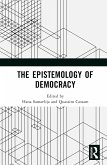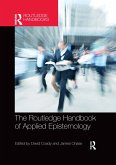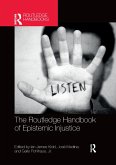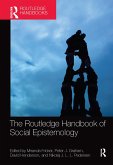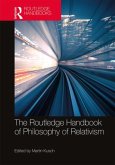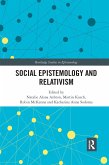As political discourse had been saturated with the ideas of "post-truth", "fake news", "epistemic bubbles", and "truth decay", it was no surprise that in 2017 The New Scientist declared: "Philosophers of knowledge, your time has come." Political epistemology has old roots, but is now one of the most rapidly growing and important areas of philosophy.
The Routledge Handbook of Political Epistemology is an outstanding reference source to this exciting field, and the first collection of its kind. Comprising 41 chapters by an international team of contributors, it is divided into seven parts:
Politics and truth: historical and contemporary perspectivesPolitical disagreement and polarizationFake news, propaganda, and misinformationIgnorance and irrationality in politicsEpistemic virtues and vices in politicsDemocracy and epistemologyTrust, expertise, and doubt.
Within these sections crucial issues and debates are examined, including: post-truth, disagreement and relativism, epistemic networks, fake news, echo chambers, propaganda, ignorance, irrationality, political polarization, virtues and vices in public debate, epistocracy, expertise, misinformation, trust, and digital democracy, as well as the views of Plato, Aristotle, Mòz , medieval Islamic philosophers, Mill, Arendt, and Rawls on truth and politics.
The Routledge Handbook of Political Epistemology is essential reading for those studying political philosophy, applied and social epistemology, and politics. It is also a valuable resource for those in related disciplines such as international relations, law, political psychology, political science, communication studies, and journalism.
The Routledge Handbook of Political Epistemology is an outstanding reference source to this exciting field, and the first collection of its kind. Comprising 41 chapters by an international team of contributors, it is divided into seven parts:
Politics and truth: historical and contemporary perspectivesPolitical disagreement and polarizationFake news, propaganda, and misinformationIgnorance and irrationality in politicsEpistemic virtues and vices in politicsDemocracy and epistemologyTrust, expertise, and doubt.
Within these sections crucial issues and debates are examined, including: post-truth, disagreement and relativism, epistemic networks, fake news, echo chambers, propaganda, ignorance, irrationality, political polarization, virtues and vices in public debate, epistocracy, expertise, misinformation, trust, and digital democracy, as well as the views of Plato, Aristotle, Mòz , medieval Islamic philosophers, Mill, Arendt, and Rawls on truth and politics.
The Routledge Handbook of Political Epistemology is essential reading for those studying political philosophy, applied and social epistemology, and politics. It is also a valuable resource for those in related disciplines such as international relations, law, political psychology, political science, communication studies, and journalism.
"As democracies (or their citizens) struggle with populist political traumas upsetting communitarian unity/identity, this timely anthology provides critical insights into the knowledge base supporting political decisions. ... Of interest to general readers and researchers in philosophy, psychology, sociology, communication, and politics. Summing Up: Highly recommended. Upper-division undergraduates. Graduate students, faculty and professionals. General readers." - J. Gough, CHOICE
"As democracies (or their citizens) struggle with populist political traumas upsetting communitarian unity/identity, this timely anthology provides critical insights into the knowledge base supporting political decisions. ... Of interest to general readers and researchers in philosophy, psychology, sociology, communication, and politics. Summing Up: Highly recommended. Upper-division undergraduates. Graduate students, faculty and professionals. General readers." - J. Gough, CHOICE



